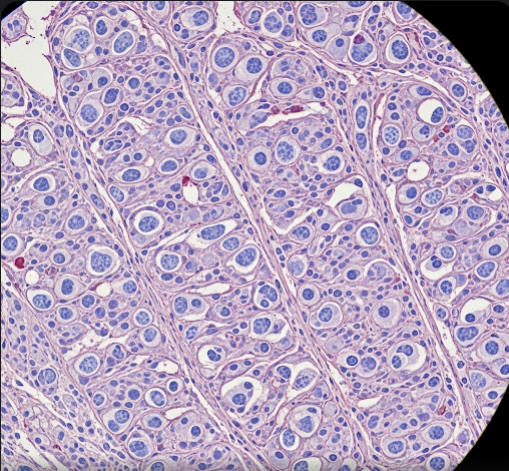Overview
Rhabdoid tumor is a rare, aggressive malignant tumor that primarily affects infants and young children. It can occur in the kidneys (rhabdoid tumor of the kidney), brain (atypical teratoid/rhabdoid tumor), or soft tissues. Early diagnosis and treatment are critical due to its rapid growth and poor prognosis. In Korea, leading pediatric oncology centers offer cutting-edge diagnostic and treatment options to improve survival and quality of life.
What is Rhabdoid Tumor?
Rhabdoid tumor is characterized by highly malignant cells with distinctive “rhabdoid” features under the microscope. It is genetically associated with mutations in the SMARCB1 (INI1) tumor suppressor gene. The tumor grows quickly and can spread to other organs, requiring aggressive treatment.
Symptoms
- Abdominal mass or swelling (kidney tumors)
- Neurological symptoms such as headaches, vomiting, or seizures (brain tumors)
- Pain in the affected area
- Weight loss and fatigue
- General signs of malignancy like fever
Causes
- Genetic mutations in SMARCB1 (INI1) gene
- Mostly sporadic with no known inherited pattern
Risk Factors
- Age below 3 years (most common)
- No significant familial history
Complications
- Rapid tumor growth and metastasis
- Organ dysfunction depending on tumor location
- Side effects from aggressive chemotherapy and radiation therapy
- Risk of recurrence
Prevention
- No known prevention due to genetic and sporadic nature
- Early detection through regular pediatric check-ups if symptoms arise
Treatment Options in Korea
Korean pediatric oncology centers provide multidisciplinary and advanced care for rhabdoid tumor:
- Diagnostic Tools: MRI, CT scans, biopsy, and genetic testing to confirm diagnosis.
- Surgery: Removal of the tumor when possible.
- Chemotherapy: Intensive multi-agent chemotherapy protocols tailored to tumor location and stage.
- Radiation Therapy: Used selectively, especially for brain tumors, to control local disease.
- Supportive Care: Management of side effects and nutritional support.
- Clinical Trials: Access to new therapies and experimental treatments.













